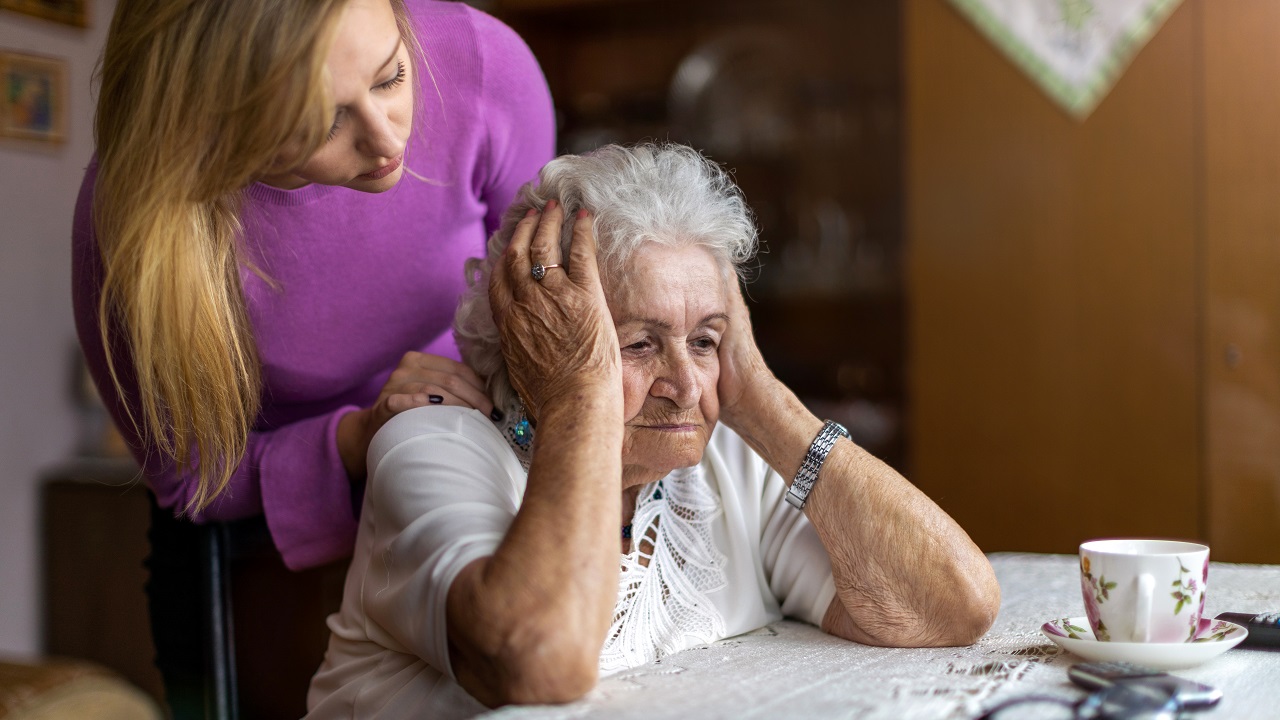Interest in dementia research has exploded in recent decades, and multiple studies have found that one demographic is disproportionately affected: women. This gender disparity is particularly significant in Alzheimer’s disease, the most common form of dementia.
Women are nearly twice as likely to develop Alzheimer’s disease, according to the Centers for Disease Control and Prevention (CDC). In 2022, the Alzheimer’s Association found that women make up nearly two-thirds of the reported Alzheimer’s disease cases in the United States, totaling over 4 million diagnoses.
Why are there higher rates of dementia in women?
Although there is no clear consensus on why there are higher rates of dementia in women, many studies examining the correlation between gender and dementia propose similar theories.
Women live longer
According to the CDC, the latest U.S. mortality data reveals that women live nearly six years longer than men on average. Age alone is not a cause of dementia, but it is one of the main risk factors. After age 65, one’s risk of developing Alzheimer’s doubles every five years.
Longer life expectancy in women could explain why there are more cases of dementia in women.
Pregnancy and menopause may affect cognitive function later in life
There is conflicting evidence as to whether reproductive factors affect the risk for dementia in women. Some studies show that hormone changes during pregnancy and menopause might play a role, but more research is needed to fully understand how reproductive history may be tied to the increased incidence of dementia in women.
Caregiving affects physical and mental health
As a caregiver, you may experience higher levels of stress than a non-caregiver. Approximately 4 out of 10 caregivers rate caregiving as “highly stressful.” Women especially feel this burden since they account for 61% of all family caregivers.
Chronic caregiver stress, feelings of loneliness, and difficulties prioritizing self-care can negatively affect both physical and mental health. Furthermore, caring for a loved one with dementia is often associated with a higher degree of caregiver burden. A study in the Journal of the American Geriatrics Society found that spousal caregivers who are caring for a loved one with dementia face an increased risk of cognitive impairment.
Depression is more common in women
According to the Office on Women’s Health, women are twice as likely as men to be diagnosed with depression. A study published in JAMA Psychiatry found that depressed mood increases the risk of dementia, specifically Alzheimer’s disease.
Gender differences
Research is limited on how gender may affect a person's risk of dementia. However, a 2019 study found higher levels of a protein associated with Alzheimer’s disease in the brains of healthy older women compared with men.
This study adds to the growing body of research on the correlation between gender and dementia risk.
Why is it harder to diagnose dementia in women?
Early detection is crucial for prompt treatment and care planning, but dementia in women is often overlooked. This may be because women tend to perform better on verbal memory tests like those used to screen for cognitive impairment.
Despite similar accumulation levels of protein fragments linked to Alzheimer’s disease in the brain, women still performed better on these tests than men. Therefore, women’s advantage in verbal memory could result in false negatives with dementia testing and delayed diagnosis.
How are dementia symptoms different in women?
Hallmark signs of dementia include memory loss and changes in behavior, but the exact symptoms can vary somewhat from person to person. Gender may even play a role.
One study of nursing home residents with moderate to severe dementia found that depressive symptoms like anxiety and sadness were more common in women, whereas men exhibited more aggressive behaviors.
How to manage dementia symptoms
Caring for a loved one with dementia is difficult, regardless of their gender. Consider a few of the following tips for providing dementia care at home:
- Create a flexible daily routine
- Improve home safety
- Adapt activities to promote engagement and socialization
- Take regular breaks from caregiving
If you could use assistance caring for a loved one, consider respite options like adult day care services and in-home care services. These types of care provide dementia patients with supervision and companionship while allowing caregivers to enjoy some respite from their regular care tasks.
Sources:
Minorities and Women Are at Greater Risk for Alzheimer’s Disease (https://www.cdc.gov/aging/publications/features/alz-greater-risk.html)
Differences Between Women and Men in Incidence Rates of Dementia and Alzheimer’s Disease (https://www.ncbi.nlm.nih.gov/pmc/articles/pmc6226313/)
Differences Between Women and Men in Incidence Rates of Dementia and Alzheimer’s Disease (https://pubmed.ncbi.nlm.nih.gov/30010124/)
Dementia (https://www.who.int/news-room/fact-sheets/detail/dementia)
Mortality in the United States, 2020 (https://www.cdc.gov/nchs/products/databriefs/db427.htm)
At A Glance: Alzheimer’s Disease (https://www.cdc.gov/aging/publications/aag/alzheimers.html)
Preeclampsia and cognitive impairment later in life (https://www.ajog.org/article/s0002-9378(17)30419-2/fulltext)
Reproductive period and dementia: A 44-year longitudinal population study of Swedish women (https://alz-journals.onlinelibrary.wiley.com/doi/full/10.1002/alz.12118)
Surgical menopause in association with cognitive function and risk of dementia: A systematic review and meta-analysis (https://www.sciencedirect.com/science/article/pii/S0306453018311478?via%3Dihub)
Why is depression more prevalent in women? (https://www.ncbi.nlm.nih.gov/pmc/articles/pmc4478054/)
Depression (https://www.womenshealth.gov/mental-health/mental-health-conditions/depression)
Chapter 69 - Postmortem imaging and neuropathologic correlations (https://www.sciencedirect.com/science/article/abs/pii/B9780444534866000697?via%3Dihub)
Sex differences in Alzheimer’s disease and common neuropathologies of aging (https://www.ncbi.nlm.nih.gov/pmc/articles/pmc6279593/)
What Happens to the Brain in Alzheimer's Disease? (https://www.nia.nih.gov/health/what-happens-brain-alzheimers-disease)
